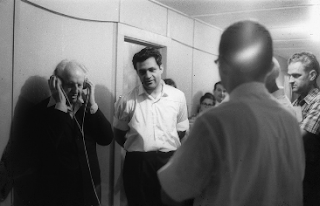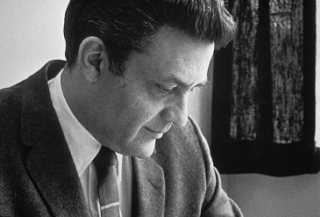The Bengali surname Bose packs rich history. Sir Jagdish Chandra Bose,
scientist extraordinaire. Netaji Subhash Chandra Bose, freedom fighter.
Prof Satyendra Nath Bose, after whom is named the boson in particle
physics.
And yet, elsewhere in the world, when anyone carrying that surname is
asked the question: “Ah, Mr Bose. Any relation…?” he knows they’re
talking about just one Bose, the one who was alive until Friday.
Amar Gopal Bose was a pioneer in modern acoustics. He was founder and
chairman of the company whose products carry the Bose name into millions
of homes and offices across the world. He was that rare combination of
scientist, engineer, academic, and star entrepreneur (he made it to the
Forbes 2007 list of the world’s 400 richest people). He’s in the US
National Inventors Hall of Fame, alongside Thomas Edison, Graham Bell
and the Wright Brothers.
Amar Gopal Bose, Indian-American entrepreneur and academic behind the
revolutionary sound systems of Bose Corporation, died on July 12 at the
age of 83 in Wayland, Massachusetts.
Dr. Bose was born on November 2, 1929, in Philadelphia, to an American
schoolteacher and Noni Gopal Bose, a freedom fighter and Calcutta
University physicist who fled to the U.S. in 1920 after being imprisoned
for opposing British rule in India.
When his business of importing coconut-fibre doormats from India failed
after the U.S. suspended non-military shipping during World War II, Noni
Bose came to rely on the early business success of his son’s venture,
which offered radio repair services in the basement of their suburban
home.
By the end of the war, father Bose had become a firm believer in young
Amar’s immense aptitude for practical electronics. In 1947, he was said
to have borrowed $10,000 to help his son enter the Massachusetts
Institute of Technology (MIT), even if he was admitted “by the skin of
my teeth,” as Dr. Bose later recalled.
 |
| Born: November 2, 1929, Philadelphia, Pennsylvania, United States
Died: July 12, 2013, Wayland, Massachusetts, United States
Nationality: American
|
He concluded that it was not just the production of sound but also its
perception that made for good listening. As a result, he would
incorporate the principles of this field, called psycho-acoustics, into
the mantra of Bose Corporation. One of the first products to come out
from the company's stable based on psycho-acoustics research, the 1968
Bose 901, is still a mainstay of its product line-up. Throughout Dr.
Bose's term as Chairman and Technical Director of the company, Bose
Corporation chose to stay private and away from investors who would be
concerned mostly with bottom lines. Consequently, the company could
pursue long-term research – without immediate deliverables - that saw it
become the brand of choice for many carmakers and architectural
installations in the 1980s and after. Dr. Bose did not believe in the
notion of ‘retirement age’, letting the company he founded enjoy his
mentorship, and managerial and technical expertise until his passing.
Bose Corporation’s emphasis on sustained original research came at a
cost, which was reflected in its price tags for consumers. But the
company’s products today enjoy an impeccable reputation that, true to
its founder’s spirit, reflects its penchant for innovation and
creativity. Dr. Bose is survived by two children, Vanu and Maya, from
his first marriage with Prema Bose, his wife, Ursula Boltzhauser, and a
grandchild.
“My father’s 66-year relationship with MIT was an integral part of his
life. He would often talk about his mentors, professors Ernst Guillemin,
Norbert Wiener, Y. W. Lee and Jerome Wiesner, as having played critical
roles in shaping his life and work. It was because of everything that
MIT did for him that my father was so pleased to be able to give back to
MIT through his gift.”....Vanu G. Bose ’87, SM ’94, PhD ’99, son of Dr. Bose, said,Amar Bose quotes:
At
13, I realized that I could fix anything electronic. It was amazing, I
could just do it. I started a business repairing radios. It grew to be
one of the largest in Philadelphia.
Amar Bose
Amar Bose
I
loved music, and in my ninth year at MIT, I decided to buy a hi-fi set.
I figured that all I needed to do was look at the specifications. So I
bought what looked like the best one, turned it on, and turned it off in
five minutes, the sound was so poor.
Amar Bose
Amar Bose
I had studied violin from age 7 to 14.
Amar Bose
Amar Bose
The excitement level for me working on projects is really not a bit different from when I was 26.
Amar Bose
Amar Bose
The
prejudice was so bad in the United States at that time that a dark
person with a white person would not be served in a restaurant. My
father, mother, and I would try it occasionally. We would sit there, and
the food would never come.
Amar Bose
Amar Bose
The
food we ate was Indian, and both my mother and father were very deep
into the ancient philosophy of India, so it could well have been an
Indian household.
Amar Bose
sound frequency
infrasonic sound
ultrasonic sound
physics of sound
acoustic resonance
wave studio tips
Amar Bose
some sound related blog post:
sound wavesound frequency
infrasonic sound
ultrasonic sound
physics of sound
acoustic resonance
wave studio tips
http://www.brainyquote.com/quotes/authors/a/amar_bose.html
http://web.mit.edu/newsoffice/2013/obit-amar-bose-0712.html
http://www.thehindu.com/news/international/amar-bose-of-sound-is-dead-at-83/article4911652.ece
http://www.bose.com/remember/index.html
http://www.dnaindia.com/scitech/1860726/report-remembering-amar-gopal-bose














No comments:
Post a Comment